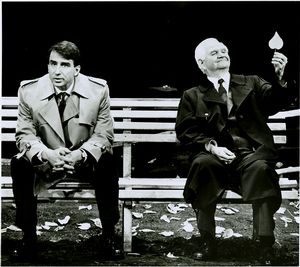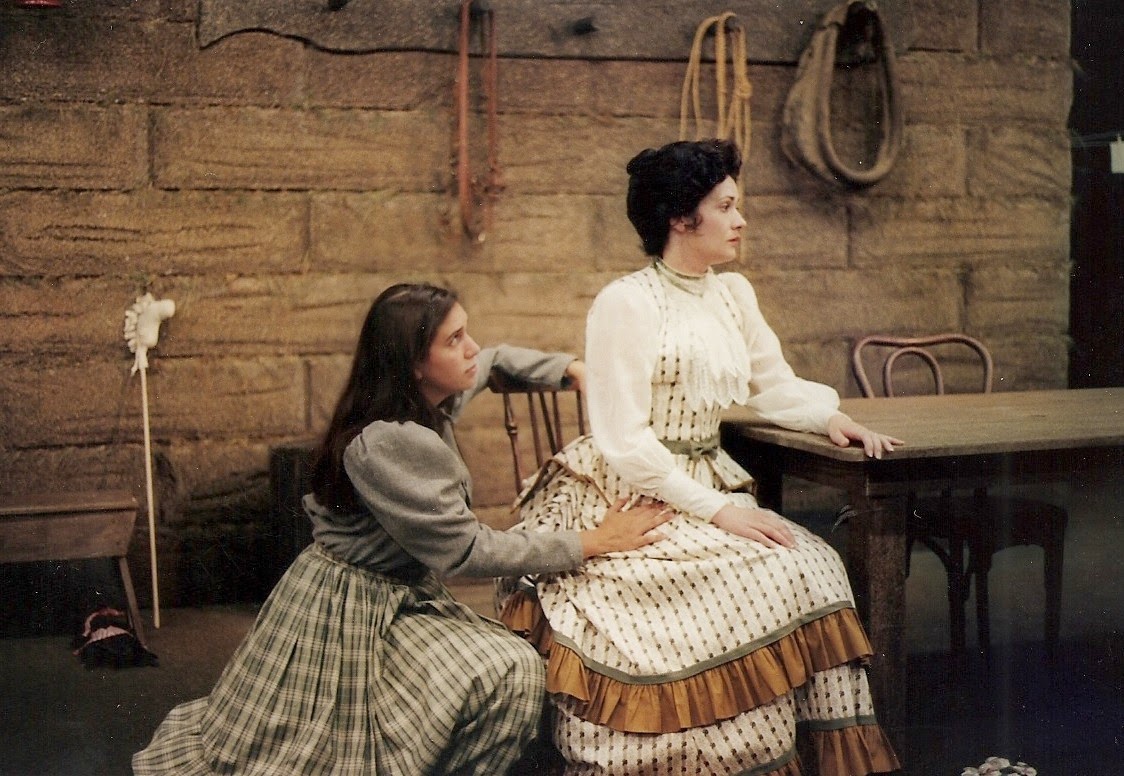Every year for the past...well, let's say since college, I have been asked what I'm "going as" for Halloween. "You're an actor, you must LOVE Halloween!" Obviously, everyone thinks that actors must just LOVE Halloween because of the dressing up. Not so, Grasshopper. Not all actors like to play dress up for this night of spooky shenanigans. Some do, yes. I know some of these people and they are nice humans and good actors and I like them. They usually do an amazing job of building costumes, too. They have fun doing it. Great. But for some of us, the idea of putting on a costume when NOT in show of some kind makes our skin crawl. I am one of those. I have nothing against All Hallows Eve or those who like to squeeze into a Naughty Viking Girl outfit or smear bloody zombie goo all over their Walking Dead ensemble. Fine. Just not for me. I can't tell you how many parties we have passed on because they were "costume required" affairs. Please understand, this is nothing personal. We do like parties and we love to have fun with our friends. But, no thank you under these conditions.
Do we decorate our house? Yes. Do we have the best candy in the neighborhood? Uhm, yeah. We also make sure to compliment (sometimes by acting terrified) of each and every little kiddo that comes trick or treating. I like Halloween. I'm just not dressing up.
Does this surprise you? Probably. Here are some other surprising things you may not know about us actors.
Do we decorate our house? Yes. Do we have the best candy in the neighborhood? Uhm, yeah. We also make sure to compliment (sometimes by acting terrified) of each and every little kiddo that comes trick or treating. I like Halloween. I'm just not dressing up.
Does this surprise you? Probably. Here are some other surprising things you may not know about us actors.
- Not every actor was "the class clown." No knock on class clowns out there, past or present. Many class clowns are very bright and often downright gifted verbally and socially, but that doesn't necessarily make for a good actors nor does it indicate the class clown will become an actor. There is a difference between an extrovert and a class clown. Actors have a tendency to be extroverted, but even that is a bit of a stereotype. Lots of very fine actors are contemplative, thoughtful, and quiet -- until they step on the stage where they turn it on.
- No, we cannot do impersonations. Some of us can, most of us can't. Nor do we care to. That is a very specialized skill reserved for ventriloquists, voice over artists, and celebrity impersonators. Oh, and my pal Chuck Sigars who is both a gifted actor and a very fine mimic. But this is rare. Don't push it with the rest of us.
- Not all of us have been on TV. So, when you ask us, "What have I seen you in?" the answer may be, "Well, were you at the Shaw Festival last year? I played Major Petkoff in "Arms and the Man." Some of us choose (that's right, I said choose) to do theatre instead of TV or film. Not because we don't want fame and stardom, but rather because so few of us actually get hired for those jobs, the theater provides us more opportunities and creative freedom.
- We do not want to be the master of ceremonies at the PTA mixer. We do not want to volunteer to lead the company retreat. We do not want to do the recordings for the company voice mail. And we do not want to do accents just for your enjoyment whenever you think it would be fun to hear us talk like Bert from Mary Poppins.
- No, we have never met Brad Pitt or Leonardo DiCaprio. Maybe we had an "under five" on "Leverage" with Timothy Hutton or did a guest starring role on "Grey's Anatomy," but, no to Brad and Leo.
- Not all high school and college actors are gay. Not all gay students are in "drama club." Not all female stage managers are lesbians and not all lesbians in the theatre are techies. This is the 21st century, please grow up about these things.
- And finally, no, we do not have closets full of costumes from all our years of making theatre. So, the the answer is, no, you cannot borrow my ears and tail from my national tour of "Cats." (Besides, I think my granddaughter is gonna want to be a ballerina kitty again next year and you never returned the drum major costume from when I was in "The Music Man.")











